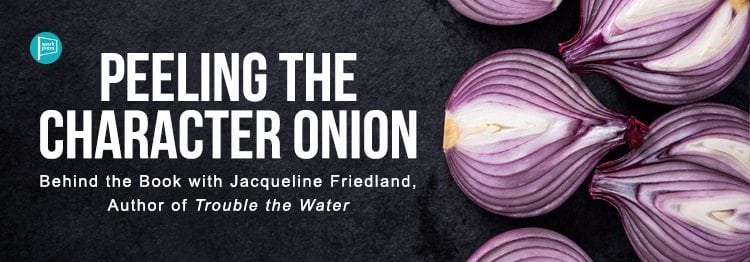
Everyone has that friend.
The one who comes across as mean, brash, rude, or obnoxious, but actually, she isn’t. You just have to peel back the onion layers to get to know her. That’s what you tell your mom, or your sister, or the twelve friends who keep asking why you put up with such a nasty person. “She has layers,” you say, as they shake their heads at you. However, lo and behold, as time passes and your friends repeatedly are exposed to said ornery friend, they come to see that maybe you were right (not to mention, you’re always right, but that’s a side point). Your friend is actually quite lovely when you get past all the bluster and social ineptitude. Not only that, but the people who actually get to know this Jane Doe, Jane the Pain, actually love her a little bit more than if she had come off as nice and wonderful straight from the start. Somehow, the effort required in learning who Jane really is, coupled with the pleasant surprise of discovering that she is neither black nor white, turns her critics into her biggest fans.
I always try to remember this unusual human phenomenon: most people in this world are neither all good, nor all bad. I find this tenet most important when writing the “bad guys” into my stories. Many of the frustrating, mean, or antagonistic people we come across in life are more complicated than we give them credit for. That snippy, unhelpful woman sitting behind the desk at the DMV? Well she probably has a mother who loves her, and some friends who think she’s just wonderful. The cop who just chewed you out for your expired registration? He’s probably lovely when he’s enjoying a baseball game with his friends. And by the way; isn’t the cop so much more interesting if he has the ability to be an awesome guy, but something happened this month, this week, this morning, to elicit his crankiest McCrankiness?
These are the ideas I tried to keep in mind as I crafted Cora Rae Cunningham, the female antagonist and the catalyst for many a catastrophe in my novel, Trouble the Water. Yeah, sure, Cora Rae is cunning and selfish, and it seems she will stop at nothing to bewitch the wealthy widower, Douglas Elling. Except, the more you read, you realize that Cora Rae is more complicated than she seems. For starters, Cora Rae is the one sister in the Cunningham home who defends the house slaves when her mother, Regina, lays into them for failing to meet various expectations. Similarly, Cora Rae is the only one who bothers to give her old dresses to the slaves. Not that sharing her castoffs is any great feat, but it shows that she has a certain awareness that her allegedly kinder sisters lack.
If the reader looks closely, she can also see the moment when Cora Rae justifies her deplorable behavior as a kindness to Abigail Milton, the story’s protagonist, and the young woman who she believes is blocking her path to Douglas. Cora Rae sees the many differences between Douglas and Abigail, especially Abigail’s humble background, and she declares that Abby is only setting herself up for heartache if she pursues a relationship with Douglas. Cora Rae, through her own prejudices, believes that a relationship between Abby and Douglas makes little sense, and should therefore be terminated before Abby invests oodles of time and emotion into the coupling, only to have everything fall apart in the long run. Although Cora Rae believes Abby to be her main stumbling block in her path toward Douglas, she also believes Douglas’s interest will remain settled on a girl like Abby only long enough to destroy the girl’s optimism and romanticism. She genuinely believes she would be doing a service to Abby by facilitating the demise of the relationship, because the longer it lasts, the greater Abby’s heartbreak will be when it (in Cora Rae’s mind) necessarily fails.
Through other actions that come later in the novel, Cora Rae proves herself a more complicated and nuanced character than readers would have originally thought. In so doing, she also shows that in literature, as well as life, not everything is as it first appears. Rather than sailing through life with her pretty face, and her family name and finances supporting her every self-indulgent move, Cora Rae does actually show that she has a certain depth and grace that we might not have expected from her. And quite frankly, I think it makes us all love her just a little bit more than we would have if she’d been a real doll straight from the beginning. There is a certain joy in peeling the onion that is Cora Rae Cunningham.
So don’t forget that the next time you meet someone who really seems to have a chip on her shoulder. Most people are complicated, and sometimes it is those convoluted, difficult, puzzling characters that are capable of bringing us the greatest amount of delight. Just keep peeling at the layers, because even if it makes your eyes tear up and your sinuses scream with pain, it might just be worth it.

Leave A Comment